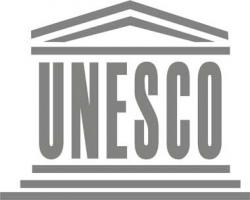Cuban Education at UNESCO Levels
- Submitted by: admin
- Arts and Culture
- Havana
- International
- 12 / 05 / 2007

Cuba leads Latin American nations in the Education for Everyone program, conceived in the 2000 Dakar forum, states a UNESCO monitoring report for 2008.
In the text, presented at the UNESCO headquarter in Paris and simultaneously in New York and New Delhi, Cuba is ranked 23 out of 129 countries, with Norway the most advanced and Chad the most backward nation.
Following Cuba is Argentina (27), and then Chile (37), Mexico (48), Uruguay (54), Panama (63), Venezuela (64) and Peru (65), among others.
The EPT monitoring report is an annual publication that evaluates worldwide progress to provide a basic education to all children, youth and adults from now until 2015.
The decrease in the world of children out of schools from 96 million in 1999 to 72 million in 2005 is one of the most positive news about this issue, although the most underprivileged and vulnerable people still have serious situations regarding access to education.
The Education for Everyone's Development Rate in 129 countries shows that 75 percent of them are far from reaching aims of the "education for everyone" program, states the text.
The report also says one in five adults is an illiterate person and 75 percent of them are concentrated in only 15 countries, in which the governments play an important role.
"We are doing well, but as education systems are developing, we have to face increasingly complex and specific problems," UNESCO general director Koichiro Matsuura said.
(PL
In the text, presented at the UNESCO headquarter in Paris and simultaneously in New York and New Delhi, Cuba is ranked 23 out of 129 countries, with Norway the most advanced and Chad the most backward nation.
Following Cuba is Argentina (27), and then Chile (37), Mexico (48), Uruguay (54), Panama (63), Venezuela (64) and Peru (65), among others.
The EPT monitoring report is an annual publication that evaluates worldwide progress to provide a basic education to all children, youth and adults from now until 2015.
The decrease in the world of children out of schools from 96 million in 1999 to 72 million in 2005 is one of the most positive news about this issue, although the most underprivileged and vulnerable people still have serious situations regarding access to education.
The Education for Everyone's Development Rate in 129 countries shows that 75 percent of them are far from reaching aims of the "education for everyone" program, states the text.
The report also says one in five adults is an illiterate person and 75 percent of them are concentrated in only 15 countries, in which the governments play an important role.
"We are doing well, but as education systems are developing, we have to face increasingly complex and specific problems," UNESCO general director Koichiro Matsuura said.
(PL
Comments